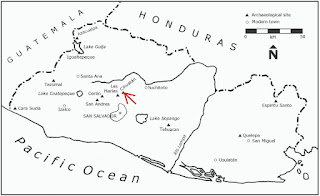Remembering "la Matanza" of 1932
January 22 was the 78 year anniverary of an event in El Salvador known simply as "la Matanza" -- the Massacre. Following an armed uprising of campesinos in January 1932, many of whom were indigenous, the Salvadoran armed forces massacred as man as 30,000 in reprisal. This week, indigenous communities remembered the slaughter, as reported in Upside Down World : The killing, led by former President General Maximiliano, left almost thirty thousand dead, "the majority of whom were indigenous -who probably did not know [that the government considered them] communists- thus destroying much of a culture that now demands justice and recognition," says Montoya. "After this massacre, the Indian community was greatly reduced in the country, many of them changed their habits for fear of being killed and many customs gradually waned into oblivion" recounted the spiritual guide "Tata" Juan. 78 years later, in a place known as "El Llanito" where ma...

